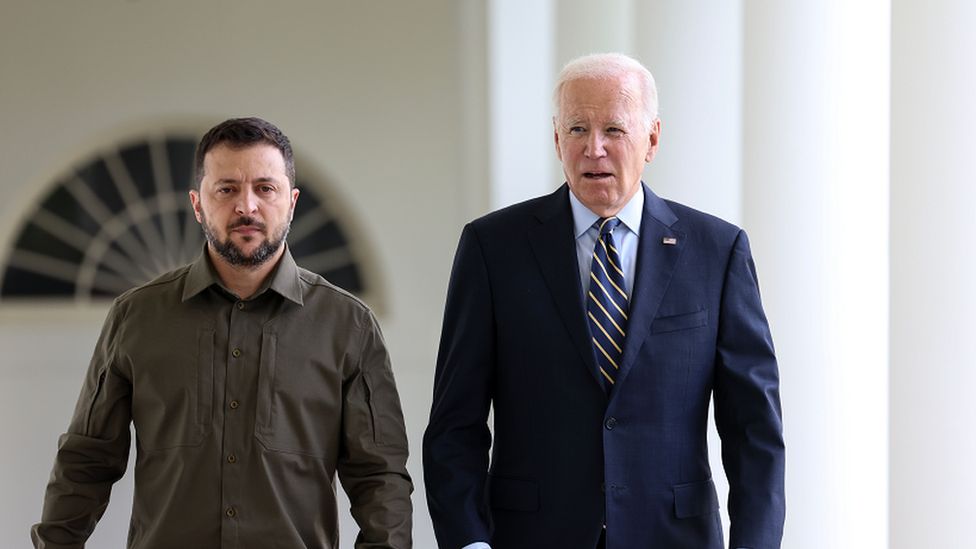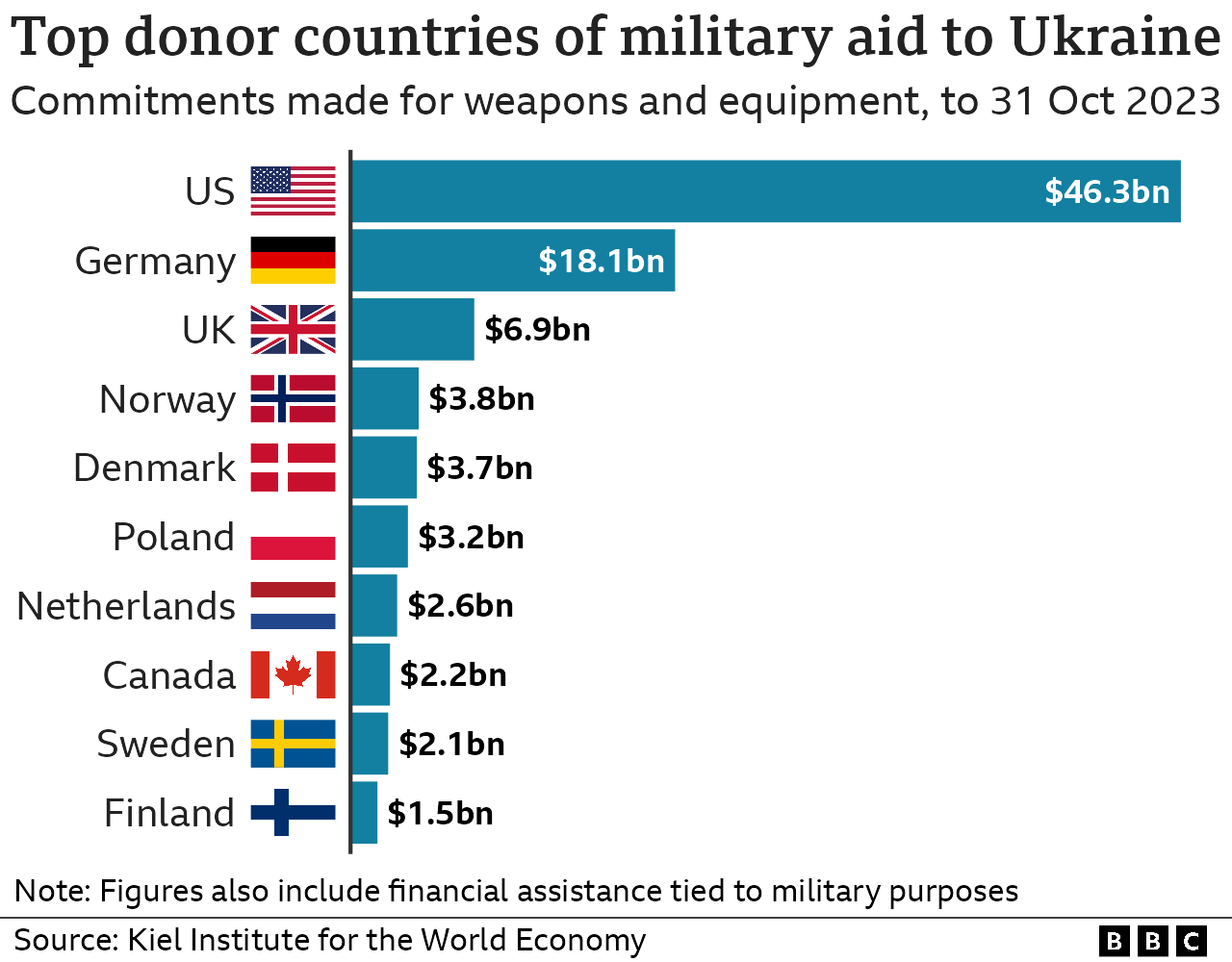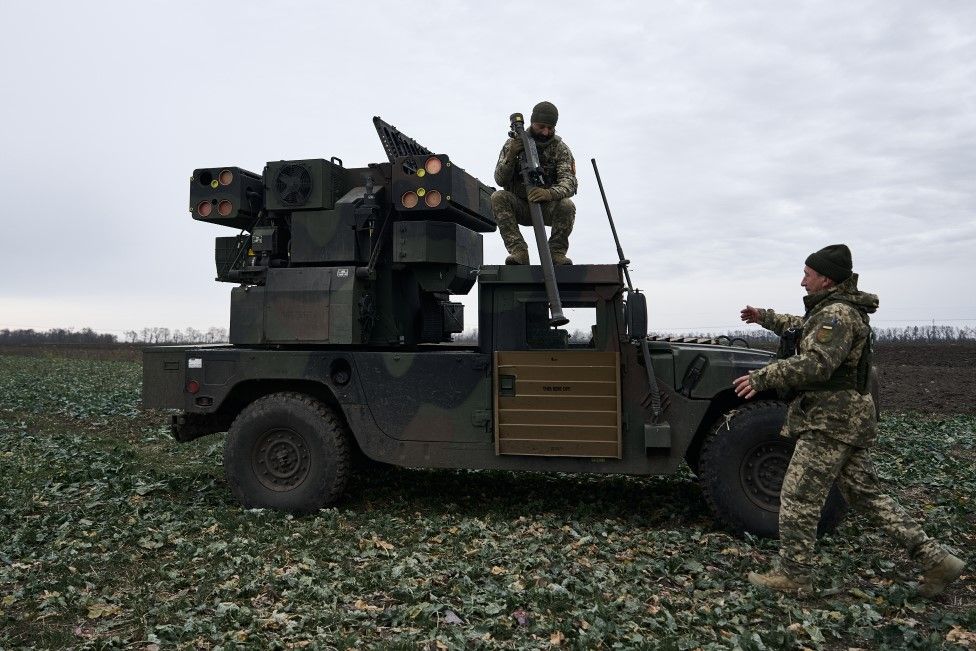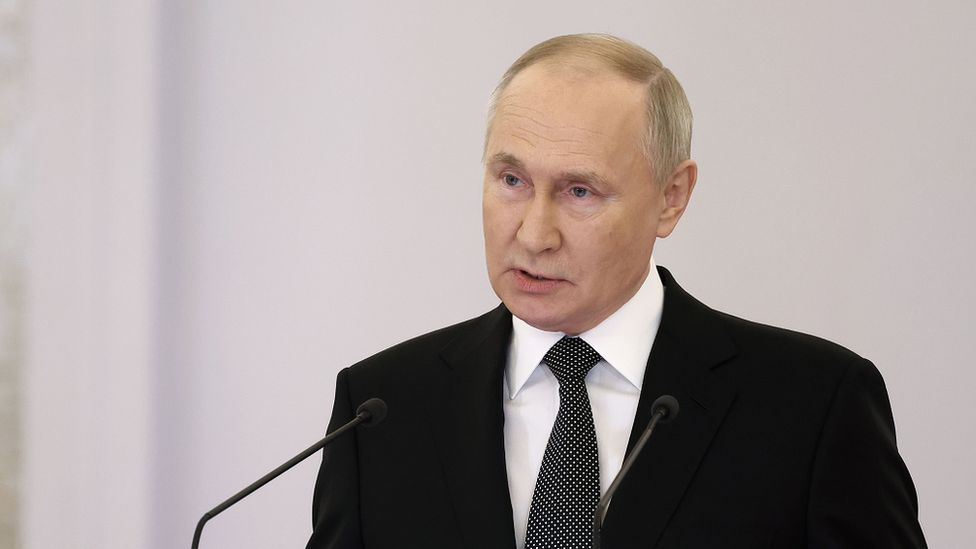Jonathan Beale

Without vital US military support there is a real danger Ukraine could end up losing this war - not immediately but in the longer term.
President Volodymyr Zelensky is in Washington to spell that out, hoping that he can persuade Congress to pass a $60bn aid package that has stalled amid a row over US border security.
On Sunday, Ukraine's first lady, Olena Zelenska, warned Ukraine is in mortal danger without continuing American support.
Western officials have told the BBC they remain confident the US administration will find a way out of the current impasse. But even if President Biden succeeds, the worries about where the US stands won't go away. A presidential election year will only bring more uncertainty.
It's America, not Europe, which has provided the lion's share of military support to Ukraine.
Europe is now on track to overtake the US in terms of economic support to Ukraine. But the US is well ahead in terms of military support.
According to the Kiel Institute, which tracks support, the US has donated €44bn worth of military equipment. Germany, the largest European donor, has contributed €18bn.

The US has not just been critical to supporting Ukraine's war effort, it's also been largely responsible for coordinating that support.
Jack Watling, of defence think tank the Royal United Services Institute, puts it simply: "Europe can't backfill what the US was providing."
Europe has, he says, "squandered" an opportunity to use the past two years to ramp up production of equipment and especially munitions.
"There is currently not the manufacturing capacity because European countries have been too incompetent to properly invest," he says.
As an example, Germany's Defence Minister Boris Pistorius recently admitted the European Union would not meet its target of providing Ukraine with one million artillery shells by next March. In reality, it will be sending Ukraine less than half of what it promised. This at a time when Ukraine needs at least 2.4m artillery shells a year to sustain its war effort.
The majority of Europe's Nato members still do not even meet the target of spending 2% of their national income - or GDP - on defence, set nearly a decade ago.
This week, UK Defence Secretary Grant Shapps said Europe must do more: "Ukraine aside, we can't carry on expecting the US to always ride to the rescue of Europe."
Russia's war economy
Contrast Europe's response with Russia's actions.
Russia has already shifted its economy to a war footing. Western officials estimate that nearly 40% of Russia's government spending next year will be on defence and security - more than its health and education budget combined.
This time last year, Russia received about 40 Shahed attack drones from Iran. Now it's believed to be manufacturing up to 300 a month.
At the end of 2022, Russia was only able to produce around 40 long range missiles a month. Now it's estimated to be making a hundred, despite western sanctions.

An anti-aircraft missile system helps protect Kyiv
It's also stepped up its production of artillery shells, and replenished dwindling stocks with the help of North Korea.
That said, Russia is still struggling to replace its wasteful losses of equipment and personnel. Western officials estimate Russia was suffering a thousand casualties a day over the course of November just in its offensive on Avdiivka alone in eastern Ukraine.
War fatigue
The optimism in the West of a year ago, following the initial successes of an initial Ukrainian counter offensive, has mostly evaporated.
The high hopes for Ukraine's subsequent summer offensive has not met expectations. It's failed to meet its objective of breaking through Russia's main lines of defence in the south.
Mr Watling says the expectation now is that this is going to be a long war "which drives tiredness and changes people's calculation or risk".
According to the Kiel Institute, pledges of new aid to Ukraine between August and October this year dropped to their lowest level since January 2022. Of 42 donor nations tracked, only 20 have committed new aid packages over that period - down nearly 90% from the previous year.
Most of Ukraine's backers, at least in public, say their resolve hasn't diminished.
But some nations are struggling to match the scale of earlier military donations - with their own stockpiles already depleted.

Vladimir Putin has Russia on a war economy drive
Slovakia, under a new government, has pulled its support completely.
It's still unclear how much support Ukraine will receive from the Netherlands in the future, following the electoral success of Geert Wilders' right wing party. The Dutch have, until now, been a key part of the coalition promising to provide Ukraine with F-16 jets.
The impact on future operations
None of these questions about future supplies of aid are likely to have an immediate impact on the battlefield.
One western official says there's little prospect of any kind of major breakthrough by either side over the next few months. Both Russia and Ukraine are deeply entrenched in defensive positions - and it's offensive operations which consume the greatest resources.
But with Ukraine likely to have to ration ammunition in the coming months there is the possibility that the strength of its forces will be further eroded.
One area where that could be felt is in compromising Ukraine's air defence capabilities, Jake Sullivan, the White House national security adviser, told the New York Times. He said the US would no longer be able to send Ukraine air defence systems like Patriot batteries and missiles.
That warning comes as Russia is expected to step up its targeting of key infrastructure in Ukraine in the coming weeks.
The lack of clarity over US military support could have another consequence. Mr Watling, who has just returned from Ukraine, says the uncertainty over aid is already having a serious impact on Ukraine's ability to plan.
He says the current US congressional gridlock is stifling Ukraine's ability to not only set out its next moves on the battlefield, but also to then sell those plans to generate more western support.
No comments:
Post a Comment